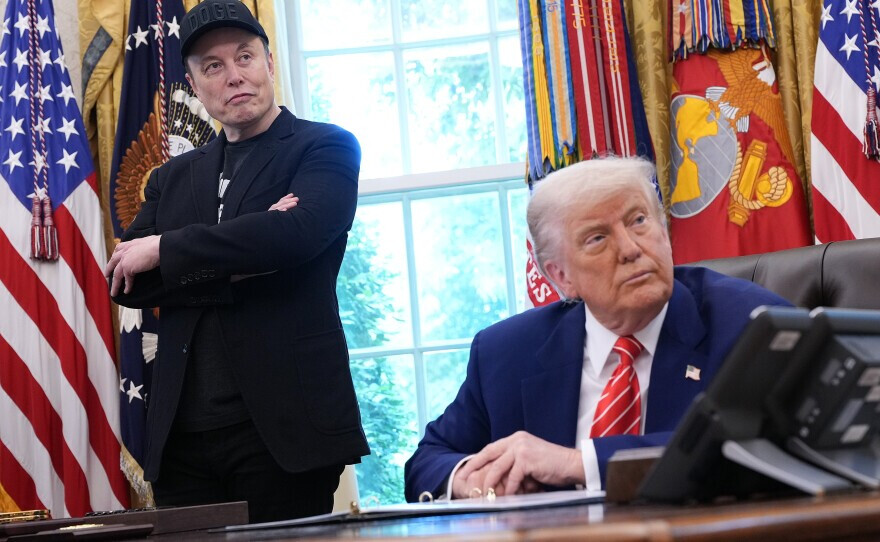
(C) KPBS
WASHINGTON, D.C. — The Department of Government Efficiency (DOGE), established under the second term of President Donald J. Trump's administration with the mission of restructuring the federal government, has been effectively dissolved, eight months ahead of its scheduled conclusion in July 2026.
Scott Cooper, Director of the Office of Personnel Management (OPM), confirmed the premature end of the agency's operations. When asked by Reuters about the current status of DOGE, Cooper stated bluntly, "It does not exist," marking the first official confirmation of the department's termination by a member of the Trump administration.
Cooper further indicated that the administration-wide federal hiring freeze, a major policy initiative linked to DOGE's work, is also effectively over. "There are no longer any reduction targets," he noted. Shortly after his inauguration, President Trump had enforced a ban on new hires across federal agencies, with exceptions granted only for critical areas like immigration enforcement and law enforcement, subject to DOGE approval.
The majority of the functions previously carried out by DOGE have now been absorbed by the OPM. A significant number of DOGE staff members have also been reassigned to other departmental duties across the federal system.
DOGE was launched in January with Tesla CEO Elon Musk serving as its de facto leader. Under Musk's guidance, the department took charge of federal restructuring, including public servant layoffs and budget cuts, aligning with the Trump administration's key priorities.
Musk famously—or infamously—championed the cause of government efficiency and deregulation. At a conservative event in February, he brandished a chainsaw gifted to him by Argentine President Javier Milei, declaring, "This chainsaw is for bureaucracy," a dramatic expression of his intent to cut through red tape.
However, the department’s aggressive actions, which included radical proposals for layoffs and sweeping budgetary changes, met with considerable backlash from some federal bureaucrats and the public. DOGE's momentum began to falter significantly following Musk's abrupt departure in late May.
Musk had claimed that DOGE was responsible for saving a staggering $175 billion in federal spending. Experts, however, caution that the lack of public detail concerning the department’s activities makes it impossible to verify this claim independently.
Despite the early dissolution of DOGE, the White House has affirmed its commitment to continue the broader agenda of regulation reduction and governmental efficiency. Liz Houston, Deputy White House Press Secretary, told Reuters, "President Trump received a clear mandate from the American people to reduce waste, fraud, and abuse throughout the federal government, and he is actively delivering on that promise."
The relationship between President Trump and Musk, which had previously faced strains due to disagreements over issues like tax legislation, appears to be warming, recently evidenced by Musk's attendance at a White House-hosted dinner.
The sudden closure of DOGE marks the end of a high-profile, and often controversial, experiment in rapid government overhaul, raising questions about the future pace and scope of the administration's efficiency drive.
[Copyright (c) Global Economic Times. All Rights Reserved.]




























